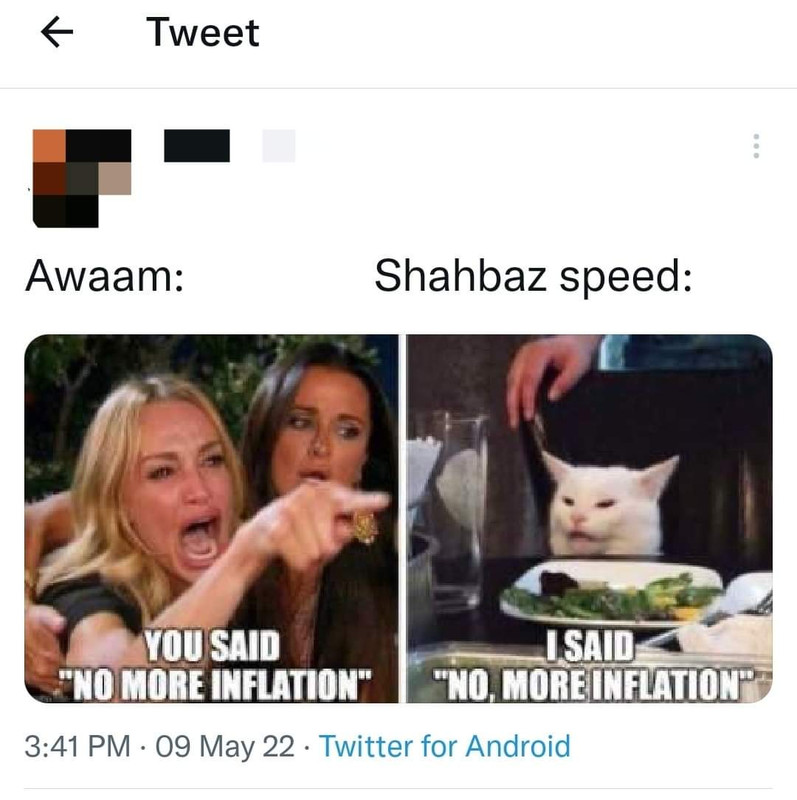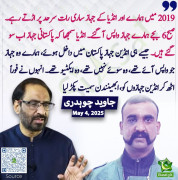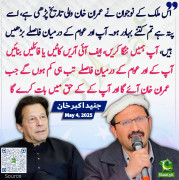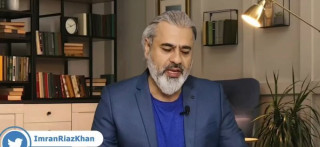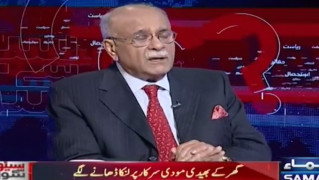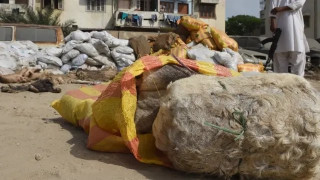In 1998, after nuclear tests Pakistan was on the verge of default, Pakistan's economic team under the leadership of Nawaz Sharif prepared an economic plan. Multiple scenarios were studied. When presented to the Prime Minister it was decided to tackle this problem from multiple fronts. Not only is Pakistan able to get strong economic support from the Gulf States but also Overseas Pakistan. Nawaz Sharif was the blue-eyed person of establishment and Overseas Pakistanis.
In 2018, Pakistan once again faced the same situation when we had to pay three times the amount we had in reserves. The populist government of Imran Khan took the same approach by contacting Gulf, China and IMF. One of the Royal Price in the Kingdom said that he believed in Imran Khan and decided to convince the leadership. Al Nahyan family in Abu Dhabi also showed strong support. China, first time in its history opened a credit line for Pakistan for billions of dollars. In 2019, Pakistan was out from the risk of default and its credit rating improved significantly. The Roshan Accounts gave a boost to Pakistan (investment from Overseas Pakistan).
Unlike Nawaz Sharif, Imran Khan remained loyal to the army. He never changed the chief and didn't intervene in army matters. Not a single time did his cabinet challenge any decision of the Establishment. Pakistan faced many challenges, Gulf States got angry at one point - Pakistan didn't accept their demands. Declining to accept Israel under pressure, criticizing the French President on blasphemy, COVID-19, repayment to IMF, FATF grey list etc. Imran Khan overall did a wonderful job. Due to Covid-19, there were supply chain issues worldwide due to factory closures and shipping companies issues inflation increased in Pakistan same as in all other countries. Rupee depreciated for the same reason as major currencies were losing against the dollar. But at any point, Pakistan was not facing any shortage of food and fuel just 2 months ago. Pakistan didn't use national reserves to keep the rupee lower (artificially) and prices were adjusted according to the International market. Largely unpopular decision but to keep the macroeconomics in good shape it was mandatory.
I still do not understand why it was mandatory to remove Khan from Government and invite a severe economic crisis that will lead to a default on external payments. The last hope is IMF and Gulf States as always but this time we created the situation ourselves to bring our house down. To heal from this damage, Pakistan has to add billions of USD in debt (at a higher interest rate) and face many shortages and needs 6 months to revive the supply chain that was disrupted a few weeks ago.
In 2018, Pakistan once again faced the same situation when we had to pay three times the amount we had in reserves. The populist government of Imran Khan took the same approach by contacting Gulf, China and IMF. One of the Royal Price in the Kingdom said that he believed in Imran Khan and decided to convince the leadership. Al Nahyan family in Abu Dhabi also showed strong support. China, first time in its history opened a credit line for Pakistan for billions of dollars. In 2019, Pakistan was out from the risk of default and its credit rating improved significantly. The Roshan Accounts gave a boost to Pakistan (investment from Overseas Pakistan).
Unlike Nawaz Sharif, Imran Khan remained loyal to the army. He never changed the chief and didn't intervene in army matters. Not a single time did his cabinet challenge any decision of the Establishment. Pakistan faced many challenges, Gulf States got angry at one point - Pakistan didn't accept their demands. Declining to accept Israel under pressure, criticizing the French President on blasphemy, COVID-19, repayment to IMF, FATF grey list etc. Imran Khan overall did a wonderful job. Due to Covid-19, there were supply chain issues worldwide due to factory closures and shipping companies issues inflation increased in Pakistan same as in all other countries. Rupee depreciated for the same reason as major currencies were losing against the dollar. But at any point, Pakistan was not facing any shortage of food and fuel just 2 months ago. Pakistan didn't use national reserves to keep the rupee lower (artificially) and prices were adjusted according to the International market. Largely unpopular decision but to keep the macroeconomics in good shape it was mandatory.
- Now, we do not have money to buy fuel. Food insecurity is in RED (alarming situation), the stock market crashed (political uncertainty and Intl. market issues), significant withdrawal of money from Roshan accounts. Pakistan is on the verge of default unless we receive USD 12 billion (non-Chinese loan). China seems not interested in bailing out Pakistan, and someone made sure by attacking their Nationals to keep them away.
- Now since this new Govt. (it is irrelevant who brought this and how it came into power), has no economic plan. The worst policies are adopted, and fuel prices were not increased according to the International market to remain popular. Fuel was not purchased according to demand. National reserves were used to bring down the dollar value (a short-term and dangerous decision).
- The biggest delegation of Pakistan's history went to the Gulf States and was unable to get any grant or fuel on deferred payment. Both Saudi Arabia and UAE are still evaluating to offer anything to Pakistan. Assurance is required from the military to lead their wars.
- According to data, this year's floods will be the worst. The crops will be damaged and food insecurity will further increase. Pakistan needs major relief to face the floods. With the current economic situation, it is going to be a challenge.
- Imran Khan dharna in Islamabad will put a further dent in the economic situation and Pakistan will lose significantly. It will be a blessing for Shahbaz Sharif as the media and people's attention will remain on this and not on the inflation.
- Almost 18 multinationals are negotiating with local companies to leave Pakistan. A major pharma company is selling their stakes at a 50% lower price. Three other pharma companies are in negotiation with local companies. Energy companies have approached their partners to buy their stakes. Two banks are negotiating a merger in the UK currently for their Pakistan operations. Another FMCG company is selling their stakes to a local competitor. With hedge fund managers disposing of their investments in Pakistan, almost USD 25 - 30 billion will be out of Pakistan in the coming months.
I still do not understand why it was mandatory to remove Khan from Government and invite a severe economic crisis that will lead to a default on external payments. The last hope is IMF and Gulf States as always but this time we created the situation ourselves to bring our house down. To heal from this damage, Pakistan has to add billions of USD in debt (at a higher interest rate) and face many shortages and needs 6 months to revive the supply chain that was disrupted a few weeks ago.
If fresh elections will not be called, I can predict a severe economic crisis. People will be on the streets against the establishment, government etc. Just see the civil unrest in Sri Lanka. In Pakistan, it will be worst as the general public blames the establishment for this.
Last edited:

